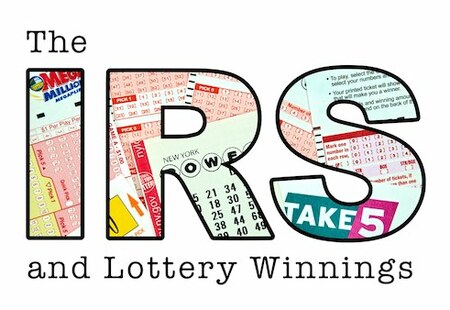Can the IRS Take Your Lottery Winnings?
With national and state lotteries played in 45 states and beyond, it’s safe to say that Americans love their games of chance. Sales of lottery tickets have nearly tripled in recent years since the Powerball jackpot climbed to $1.58 billion in 2016 and the Mega Millions hit its biggest jackpot ever of $1.53 billion in 2018.
After winning, most lotto players expect the hardest task to be deciding whether to collect the prize as a lump sum or in yearly instalments. However, paying taxes on your prize is the biggest issue you’ll encounter, whether you win a smaller prize or a massive jackpot. This article outlines the cases in which the IRS can take your lottery winnings.
How Much Tax Will I Pay on Lottery Winnings?
First off, the good news is that not all lotto winnings are taxable. If you win less than $600 (after the cost of the ticket is subtracted from your winnings), then you can collect your winnings in full and not report your prize to the Internal Revenue Service (IRS).

You should also note that bigger prizes are subject to higher taxes. If a US resident (with OR without an SSN or Tax Identification Number) wins a prize of $5,000 or more from a lottery, sweepstakes, or in a betting pool (such as a sports pool), the IRS will collect 24% federal tax on the prize. This means if you win $10,000, you’d need to pay $2,400 in taxes.
It’s important to note that major American jackpot winners will pay more in taxes, since their winnings will push them into the highest federal earning brackets. Currently, the highest tax rate you could pay on lottery winnings is 37%—no small amount on a multi-million-dollar prize! This means that if you win $5 million on the lottery, you’ll pay $1,850,000 in federal taxes alone. Of course, this bill doesn’t include your state or city taxes. Meanwhile, if an international player or non-US resident wins a prize (for example, by playing Mega Millions online), their winnings would immediately have 30% in taxes deducted.
The lottery agency will automatically deduct the federal tax and the state’s standard tax before paying out your prize. Depending on your full income that year, the agency may overpay this tax initially. If they end up paying more than you owe based on your final tax return, then you would get a tax refund.
The IRS will also expect you to report the following types of winnings:
- Bingo or slot machine: $1,200 or more (not subtracting the wager/ cost to play)
- Keno: $1,500 or more (after subtracting the ticket cost)
- Poker: $5,000 or more (after subtracting the wager or buy-in cost)
While there are some ways to shelter your winnings from taxes, you will always need to pay something to the taxman whether you like it or not.
Can the IRS Withhold Lottery Winnings if I Owe Back Taxes?
If you owe taxes from previous years, the state and federal governments can place a tax lien against your name and begin collecting the debt on their own terms.
If there is a tax lien against you and you win a lottery prize, the lottery organization will first deduct the regular taxes and then send the rest of the prize to the IRS to repay your back taxes. Once the taxes are collected, any money left over from your prize will be paid out to you.
This can happen even if you are already paying your back taxes through payroll deductions or another way. If you deposit your winnings in a bank account and owe taxes down the road, the IRS can also access your bank account and collect back taxes later on. At the end of the day, the government will always collect back taxes in the fastest way possible.
Can the IRS Withhold Lottery Winnings if I Owe Child Support?
Tax liens are the first thing governments will deduct from your winnings, and child support arrears are the second. After the government collects your back taxes, any money left over will be applied to the amount you owe in child support payments.
Lottery winnings are considered income, and just like your other earnings, a portion of your winnings can be used for child support repayment. However, states have different rules for collecting child support from lotto winnings. For example, Wisconsin only collects this money if you win at least $1,000, while Florida will collect child support repayments on prizes starting at $600.
What Happens If I Die?
If you are concerned about what will happen to your winnings after you die, rest assured that you can transfer whatever remains of your lump sum or annuities to a beneficiary. However, if you have any outstanding taxes or debts to pay when you die, those will also be transferred to the beneficiary—meaning they will be liable to pay them just the same as you did. In addition, they will need to pay an inheritance tax of up to 40% on any amount over $11.58 million.
Conclusion
In America, big lottery wins need to be reported and major jackpot prizes are heavily taxed. The IRS will also use your winnings to collect any government debt you owe before paying out your prize—if there’s anything left!
Some people try to avoid taxation by gifting winnings away to family and friends but this can actually raise taxes on your prize and land you in a lengthy court battle to reclaim it—something the greedy Tonda Lynn Dickerson learned the hard way.
In order to hold onto as much of your prize as possible, it’s highly recommended to consult a tax specialist, a reputable accountant, and a lawyer. By using smart investments and setting up a lottery trust, they can help you safeguard your money now—and in the future.






